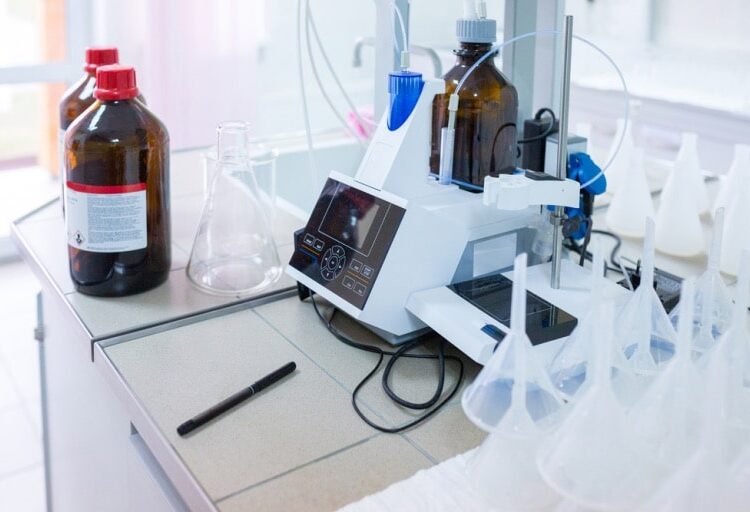Dissolution testing is crucial in the pharmaceutical industry as it ensures the effectiveness, safety, and quality of medications. This process determines the rate at which an active pharmaceutical ingredient (API) dissolves in a solvent, which directly impacts the drug’s bioavailability.
Pharmaceutical companies rely on dissolution testing equipment to conduct this test with precision. In this article, we will explore the top 10 benefits of incorporating dissolution testing equipment.
1. Quality Assurance
Dissolution testing equipment plays a vital role in maintaining high-quality standards within the pharmaceutical industry. By assessing how efficiently an API dissolves from its dosage form, these devices help manufacturers verify whether their products meet required specifications and regulatory standards.
This information is essential for ensuring consistent drug release performance, which is critical for patient safety and therapeutic efficacy.
2. Compliance with Regulations
Regulatory bodies overseeing the pharmaceutical industry, such as the FDA (Food and Drug Administration), enforce strict guidelines regarding drug release evaluations.
Employing dissolution testing equipment ensures compliance with these regulations by providing evidence that medications are released uniformly and under controlled conditions.
These tests allow organizations to align with the quality benchmarks mandated by regulatory authorities, thus avoiding potential legal and financial repercussions.
3. Development of Formulations
The development of pharmaceutical products heavily depends on dissolution tests to fine-tune formulations and achieve desired drug release profiles.
Dissolution testing equipment is essential for evaluating the impact of formulation components such as excipients, binders, and coatings on dissolution rates. This data helps determine the optimal combination of ingredients to achieve the best therapeutic outcomes for patients.
4. Batch Testing for Product Release
Before a batch of medication can be released to the market, manufacturers must conduct batch-release testing to ensure consistency across all batches.
Dissolution testing equipment provides reliable results by monitoring the dissolution of pharmaceutical ingredients from individual dosage units within a batch. This ensures that each batch meets the necessary quality standards before it reaches consumers.
5. Efficiency and Cost-Effectiveness through Automation
Implementing automation in dissolution testing processes offers significant cost savings for pharmaceutical companies in terms of time and resources. Automation reduces human errors, improves efficiency, and allows for the simultaneous testing of multiple samples.
When combined with high-throughput systems, this optimization can significantly enhance productivity and overall output, making the drug development process more streamlined and cost-effective.
6. Accelerating Drug Development
Effective dissolution testing plays a critical role in speeding up drug development processes by providing insights into solubility, release rates, and crystalline structures.
This enables the early identification of formulation issues, allowing researchers to make necessary adjustments and potentially avoid costly delays in the drug development timeline. Faster development translates to quicker time-to-market, benefiting both the pharmaceutical company and patients in need.
7. Real-Time Monitoring
Modern dissolution testers are equipped with advanced technology that allows for real-time monitoring of parameters such as temperature and pH levels during the dissolution process.
Continuous data collection helps scientists quickly identify any issues that arise and make on-the-fly adjustments to ensure optimal medication performance. This real-time insight enhances the reliability and accuracy of the testing process.
8. Customization of Test Conditions
Different phases of drug development may require modifications to test parameters based on specific dosage forms or intended clinical applications. Dissolution testing equipment offers flexibility by allowing researchers to customize test conditions to meet their unique needs.
This adaptability ensures that manufacturers can replicate relevant environments while still adhering to regulatory guidelines, making the testing process more relevant and accurate.
9. Enhancing Data Integrity
Data integrity is paramount in pharmaceutical manufacturing and testing procedures, as it directly impacts patient safety and product efficacy.
High-quality dissolution testers come with features such as electronic signatures, secure data storage, and audit trails that comply with the FDA’s 21 CFR Part 11 regulations. These features ensure that pharmaceutical data remains accurate, reliable, and secure throughout the testing process.
10. Quality Control
The integration of dissolution testing equipment empowers pharmaceutical companies to maintain consistent quality control across all stages of production or operational cycles.
Ensuring consistent dissolution rates guarantees that medications will perform as intended for patients, thereby reducing risks for manufacturers. Consistent quality control also strengthens a company’s reputation and fosters trust among healthcare providers and patients.
Conclusion
Dissolution testing equipment plays a crucial role in the pharmaceutical industry by ensuring quality standards, regulatory compliance, formulation optimization, process automation, and data integrity.
By investing in high-quality dissolution testing equipment, pharmaceutical companies can achieve more reliable results, improve patient outcomes, and maintain a competitive edge in the industry. This investment not only enhances productivity but also contributes to the overall safety and efficacy of medications.




